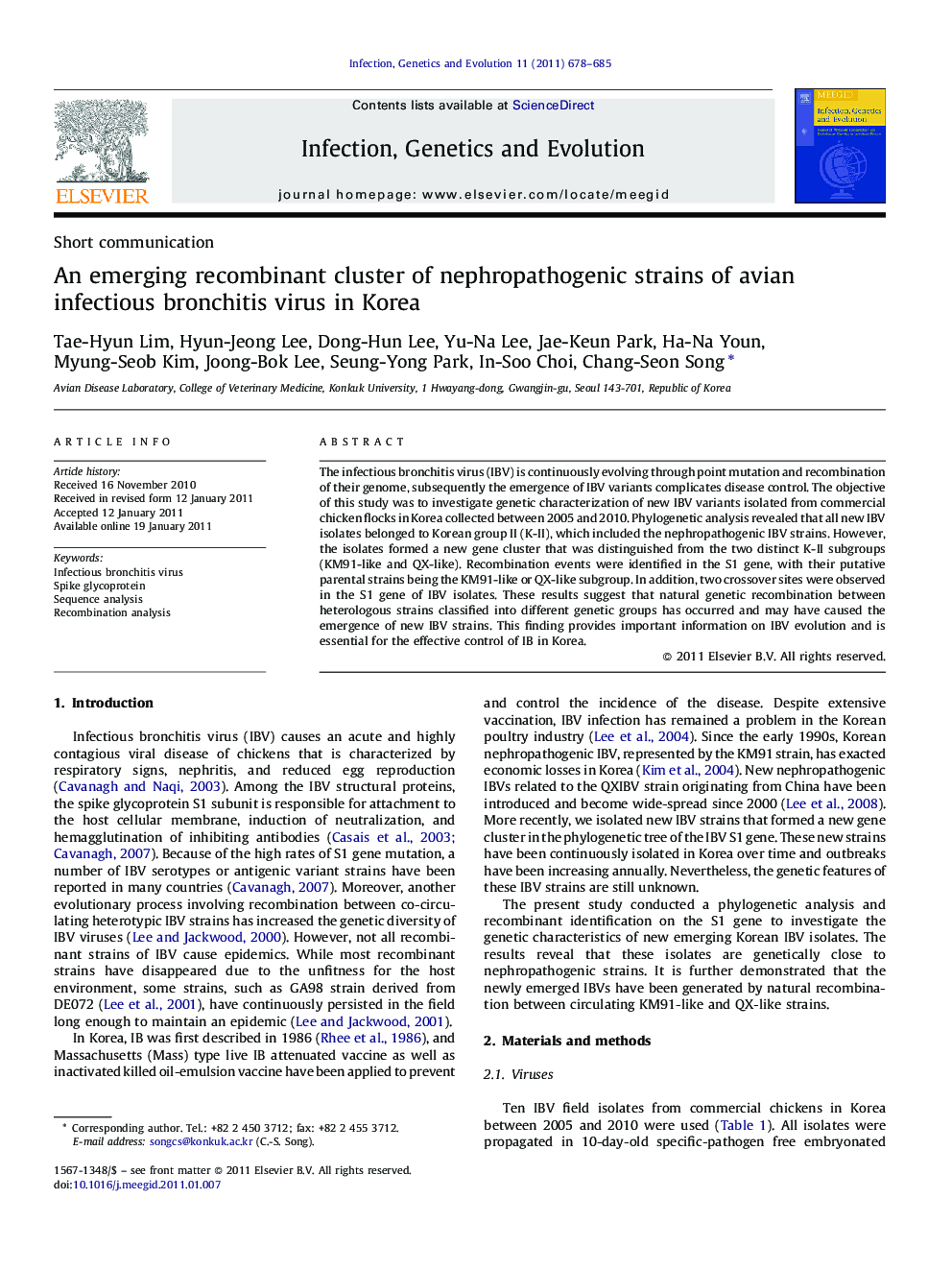| Article ID | Journal | Published Year | Pages | File Type |
|---|---|---|---|---|
| 5911732 | Infection, Genetics and Evolution | 2011 | 8 Pages |
Abstract
The infectious bronchitis virus (IBV) is continuously evolving through point mutation and recombination of their genome, subsequently the emergence of IBV variants complicates disease control. The objective of this study was to investigate genetic characterization of new IBV variants isolated from commercial chicken flocks in Korea collected between 2005 and 2010. Phylogenetic analysis revealed that all new IBV isolates belonged to Korean group II (K-II), which included the nephropathogenic IBV strains. However, the isolates formed a new gene cluster that was distinguished from the two distinct K-II subgroups (KM91-like and QX-like). Recombination events were identified in the S1 gene, with their putative parental strains being the KM91-like or QX-like subgroup. In addition, two crossover sites were observed in the S1 gene of IBV isolates. These results suggest that natural genetic recombination between heterologous strains classified into different genetic groups has occurred and may have caused the emergence of new IBV strains. This finding provides important information on IBV evolution and is essential for the effective control of IB in Korea.
Related Topics
Life Sciences
Agricultural and Biological Sciences
Ecology, Evolution, Behavior and Systematics
Authors
Tae-Hyun Lim, Hyun-Jeong Lee, Dong-Hun Lee, Yu-Na Lee, Jae-Keun Park, Ha-Na Youn, Myung-Seob Kim, Joong-Bok Lee, Seung-Yong Park, In-Soo Choi, Chang-Seon Song,
